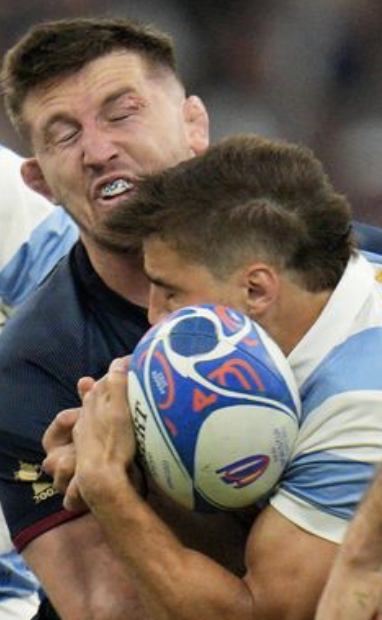We stagger to the end of what has been a momentous season for rugby in many ways.
There have been moments to treasure and moments best forgotten, but there is no doubt at all that at the top level, be that the World Cup, the Six Nations, the European Cup, and the Premiership semi-finals and final, we have witnessed some incredibly exciting matches. There have also been matches, and very important matches decided effectively by the award of red cards.
I refer of course to the premiership final, and also, but of equal importance, the World Cup final.
There is no doubt that as the author of most of the articles on this website I come in for a degree of criticism because of perceived negativity about rugby in general. I make no apology for this at all because everything in rugby’s garden is far from rosy right now. If you took everything television commentators, and the celebrity summarisers say then you might be lulled by them into a false sense of security that all is well. You will be happy to read that this article isn’t about the state of rugby at all levels, but it is entirely about red cards, and yellow cards.

I am a firm believer that before a red card can be issued there has to be intent. Now intent by knocking on by a defender of a scoring pass and depriving the attacking team of a certain try should never under any circumstances be a red card. A penalty try most certainly, but never a red, because I believe the red card should be awarded essentially for malice aforethought when it comes to foul play. By that I mean, a punch thrown, a trip tackle, a head butt, as three examples. By malice aforethought I mean a deliberate attempt to injure or maim a player.
In the two cases mentioned earlier involving players in the World Cup Final and the Premiership Final, by any standards the offending players were simply unlucky. I saw no malice aforethought at all, and the punishment meant the other fourteen players had to suffer and I believe that to be unfair.
Not only that, but the result, despite the extraordinary efforts put in by the eventual losers, which of course were the side reduced to fourteen players, became somewhat inevitable. I know for me as a spectator, the whole spectacle was ruined by that one moment of madness, and in both cases I stopped watching.
The madness here being the referee and his three cohorts, because they are paralysed by the inflexible nature of the laws. They all knew the offences were inherently accidental. Sometimes the collision speeds meant a head-on-head contact is simply unavoidable.

So, what changes could be made that wouldn’t mean the potential destruction of the match as a fair contest?
Here are a couple of alternatives that might be acceptable.
Firstly, would be to send the player off, but bring on a replacement immediately. Now you the reader might argue that there is no immediate disadvantage to the team whose player offended, and you would to some extent be correct. A little knowledge of history can be a good thing, so cast your mind back to the last World Cup when Dan Cole had to come on in the first few minutes, to face not only the feared Springbok front row, but also the bomb squad in the second half. The look on his face said it all, because as with most front rowers nowadays, he did not very often play a full game. Did it affect the result, of course it did.
Equally relevant, would be a red card for someone like Finn Russell. He is such an enormous influence on the whole team, and whilst I can never imagine him getting a red card, accidental collisions as I insist cause many red cards, it can happen to the very best. How do you replace a Finn Russell, and the answer is you can’t, so even the shadow fly half coming on, would have a huge impact.
As a final point, what about the replacement being injured? That would obviously be a match changing impact, but at least it would still be a fifteen a side game.
My second alternative is the award of an immediate seven points to the opposition, regardless of where the offence took place on the field. Possibly a fine, and a suspension to follow, but players who gave away red cards would not last for long at any club. In addition, there perhaps should be the removal of the offender and the replacement coming on.
We all have our own opinions about this, but I believe as a principle this could work without spoiling the contest.

